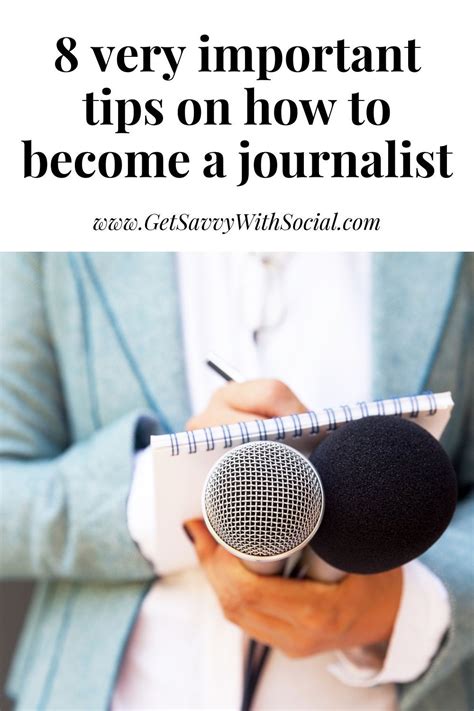As a journalist, the power of words is your most valuable tool. The impact of well-chosen words can sway opinions, evoke emotions, and drive change. In today’s digital age, developing effective communication skills is essential for effectively reaching and connecting with your audience. This includes unleashing the power of storytelling, mastering the art of interviewing, and crafting captivating headlines and leads. However, navigating ethical challenges in journalism is crucial to maintaining credibility and integrity.
In this blog post, we will explore the various aspects of becoming a journalist, from harnessing the power of persuasive language to building trust through transparent reporting. We will also discuss adapting to digital journalism and social media, as well as the delicate balance between objectivity and advocacy journalism. Whether you are a seasoned journalist or aspiring to enter the field, this post will provide valuable insights into the world of journalism and the role of words in shaping our society.
Table of Contents
The impact of well-chosen words
In today’s fast-paced world, where information is constantly bombarding us from all angles, the power of well-chosen words cannot be overstated. Whether in journalism, marketing, politics, or everyday conversation, the impact of well-chosen words can make or break a message. The choice of a single word can completely change the tone, meaning, and impact of a sentence or statement.
Using precise and effective language can help convey important messages, evoke emotions, and persuade the audience. In journalism, specifically, the use of well-chosen words can help create powerful headlines and leads that capture the reader’s attention and draw them into the story. The impact of well-chosen words can also help journalists navigate ethical challenges, as the language used can influence the way a story is perceived.
Furthermore, in the age of digital journalism and social media, the impact of well-chosen words is amplified. With limited character counts and attention spans, the ability to convey a message effectively in a few words is crucial. Whether it’s a tweet, a headline, or a Facebook post, the power of concise and impactful language can make all the difference in engaging the audience.
In conclusion, the impact of well-chosen words cannot be underestimated. Whether it’s in journalism, marketing, or everyday communication, the ability to select the right words is a powerful skill that can shape narratives, influence opinions, and ultimately make a lasting impact.
Developing effective communication skills
Effective communication skills are essential for success in both personal and professional relationships. The ability to express oneself clearly and to understand others is crucial for effective collaboration and relationship building. Developing effective communication skills requires active listening, empathy, and the ability to adapt communication style to different audiences.
One of the key components of developing effective communication skills is active listening. This means fully concentrating on what is being said rather than just passively ‘hearing’ the message of the speaker. By actively listening, one can better understand the speaker’s perspective and respond more thoughtfully.
Empathy is another important aspect of effective communication. Being able to put oneself in another person’s shoes and understand their emotions and motivations can help in creating a deeper connection and fostering trust in communication.
Lastly, adapting communication style to different audiences is crucial for effective communication. Whether it’s adjusting vocabulary, tone, or body language, tailoring communication to the specific needs and preferences of the audience can make the message more impactful and easily understood.
Unleashing the power of storytelling
Storytelling is a powerful tool that has been used for centuries to communicate ideas, share experiences, and connect with others. When well-chosen words are used in a story, they have the ability to captivate an audience and evoke emotion. Whether it’s through verbal storytelling, written narratives, or visual storytelling, the impact of a well-crafted story can be profound.
Effective communication skills are essential for successful storytelling. The ability to articulate ideas clearly, engage the audience, and convey a powerful message is crucial. Developing effective communication skills involves understanding the audience, tailoring the story to resonate with their experiences, and using language that is relatable and impactful.
Mastering the art of storytelling also involves the use of persuasive language to influence the audience and convey a compelling message. Crafting captivating headlines and leads is crucial for drawing the audience in and generating interest in the story. The use of storytelling techniques such as foreshadowing, imagery, and emotional appeal can further enhance the impact of the narrative.
In the digital age, the power of storytelling has expanded to include social media and digital journalism. Adapting to digital journalism and utilizing social media platforms to share stories can reach a wider audience and foster greater engagement. The use of visual storytelling, interactive media, and multimedia elements can further enhance the storytelling experience and connect with audiences in a dynamic way.
Mastering the art of interviewing
Mastering the art of interviewing is a critical skill for anyone in the field of journalism. Conducting a successful interview requires the ability to ask insightful questions, actively listen to the responses, and navigate the conversation in a way that elicits valuable information from the interviewee.
One key aspect of mastering the art of interviewing is thorough preparation. Before conducting an interview, it is important to research the interviewee and their background, as well as the topic that will be discussed. This preparation allows the interviewer to ask informed and relevant questions, demonstrating a level of understanding and professionalism that can lead to more meaningful conversations.
Another important component of interviewing is the ability to build rapport and establish trust with the interviewee. Creating a comfortable and open atmosphere can encourage the interviewee to share candid and insightful information, leading to a more successful interview overall.
Finally, mastering the art of interviewing also involves the ability to adapt to different interview styles, personalities, and unexpected developments. Flexibility and quick thinking are crucial in ensuring that the interview remains productive and engaging, even when faced with unexpected challenges.
Navigating ethical challenges in journalism
Journalism is a profession that requires a keen sense of ethics and integrity. Reporters and journalists must navigate a myriad of ethical challenges in their line of work, from conflicts of interest to maintaining objectivity in their reporting.
One of the most important ethical considerations in journalism is the need to provide accurate and truthful information to the public. Journalists have a responsibility to verify the facts and sources of their stories, ensuring that they are presenting the most accurate and unbiased information possible.
Another ethical challenge that journalists face is the need to balance the rights of individuals with the public’s right to know. This often comes into play when reporting on sensitive topics such as crime or national security. Journalists must carefully weigh the potential harm that their reporting could cause against the public’s right to be informed.
In addition to these challenges, journalists must also navigate the ethical implications of new technologies and social media. The rapid dissemination of information in the digital age has created new ethical dilemmas for journalists, such as the need to verify information from social media sources and the potential impact of sensationalized headlines.
Crafting captivating headlines and leads
Crafting captivating headlines and leads is essential for grabbing the attention of readers and drawing them into your story. A well-crafted headline can make the difference between someone clicking on your article or scrolling right past it. It is the first impression that your piece will make, so it’s important to make it count.
One way to craft captivating headlines is to use strong, powerful language that sparks curiosity. Words like secrets, insider, new, and exclusive can pique the interest of readers and make them want to know more. By using evocative language, you can create a sense of urgency and importance around your story, prompting readers to click on your article to find out what it’s all about.
In addition to attention-grabbing language, a captivating headline should also be concise and to the point. Readers typically scan headlines quickly, so it’s important to get your message across in as few words as possible. Consider the main point of your article and condense it into a snappy headline that will intrigue readers and make them want to learn more.
When it comes to crafting leads, or the opening lines of your article, it’s important to continue the intrigue and draw readers further into your story. You can do this by posing a thought-provoking question, sharing an intriguing anecdote, or presenting a compelling statistic. The lead should give readers a taste of what’s to come in the rest of the article and entice them to keep reading.
Harnessing the power of persuasive language
Utilizing persuasive language is an essential skill in the field of journalism. The ability to sway the opinions of the audience through well-crafted words is a powerful tool for journalists. Whether it’s in the form of an article, an interview, or a report, the use of persuasive language can greatly impact the reader’s perception.
By carefully selecting powerful words and structuring sentences effectively, journalists can convey their message in a compelling manner. The goal is to not only inform the audience but also to influence their thoughts and actions on a particular issue. This can be achieved through the use of rhetorical devices such as ethos, pathos, and logos, which appeal to the audience’s emotions, ethics, and logic.
Moreover, journalists must be mindful of the tone and voice they use in their writing. A persuasive piece should exude confidence, authority, and credibility to gain the trust of the audience. It’s important to strike a balance between being persuasive and maintaining ethical standards to uphold the integrity of the profession.
Ultimately, mastering the art of persuasive language allows journalists to not only inform the public but also to inspire action and change. It’s a skill that can shape public opinion, influence policy, and drive positive societal impact.
Building trust through transparent reporting
Building trust through transparent reporting is crucial for journalists and news organizations to maintain credibility and integrity in their work. When reporting on important events and issues, it is essential to provide accurate, balanced, and unbiased information to the audience. This not only helps in building a loyal readership but also establishes the news outlet as a reliable source of information.
One of the main ways to achieve transparent reporting is by clearly stating the sources of information and verifying the accuracy of the facts presented. This can be done through rigorous fact-checking processes and attributing quotes and data to their original sources. By doing so, journalists can ensure that the information they are sharing is credible and trustworthy.
Another important aspect of transparent reporting is disclosing any potential conflicts of interest. Whether it’s a financial relationship with a company being covered or a personal relationship with a source, journalists must be transparent about any potential biases that could impact their reporting. This not only strengthens the credibility of the news outlet but also helps in maintaining the public’s trust in the media.
Ultimately, building trust through transparent reporting is essential for the journalism industry to thrive. By providing accurate and unbiased information, and disclosing any potential conflicts of interest, journalists and news organizations can establish themselves as credible sources of news, earning the trust and loyalty of their audience.
Adapting to digital journalism and social media
In today’s fast-paced digital age, the landscape of journalism has evolved significantly. With the rise of social media platforms and digital news outlets, the way news is disseminated and consumed has undergone a profound transformation.
Journalists and media professionals must adapt to this new reality by harnessing the power of digital journalism and social media to effectively reach their audience. This means developing a keen understanding of how to leverage various social media platforms to deliver news content in an engaging and impactful manner.
Moreover, the rise of citizen journalism and user-generated content on social media has also posed significant challenges for traditional news organizations. Journalists must navigate the ethical implications of using and verifying user-generated content, while also maintaining credibility and transparency in their reporting.
Adapting to digital journalism and social media requires a willingness to embrace change and continuously update one’s skill set to stay ahead of the curve. This includes mastering the art of multimedia storytelling, interactive content creation, and utilizing data-driven insights to optimize digital strategies for news dissemination.
Advocacy journalism: Balancing objectivity and activism
Advocacy journalism is a form of reporting that aims to bring about social or political change. It often involves the active promotion of a particular cause or viewpoint, and as such, it can be a contentious topic within the field of journalism. The challenge for advocacy journalists lies in striking a balance between maintaining objectivity and actively advocating for change.
In order to navigate this ethical tightrope, advocacy journalists must be skilled in critical thinking and empathy. They must be able to critically evaluate the information they receive and approach their reporting with a sense of empathy towards all those affected by the issue at hand. By doing so, they can ensure that their reporting is fair and accurately represents the complexities of the situation.
Another key aspect of advocacy journalism is the use of transparent and honest reporting. Advocacy journalists must be open about their biases and motivations, and they must be willing to engage in constructive dialogue with those who may disagree with their viewpoint. By being transparent about their advocacy, they can build trust with their audience and maintain their credibility as journalists.
Ultimately, the goal of advocacy journalism is to bring about positive change in society. By striking a balance between objectivity and activism, advocacy journalists can use their reporting to shed light on important social issues and advocate for those who may not have a voice. When done with integrity and transparency, advocacy journalism






